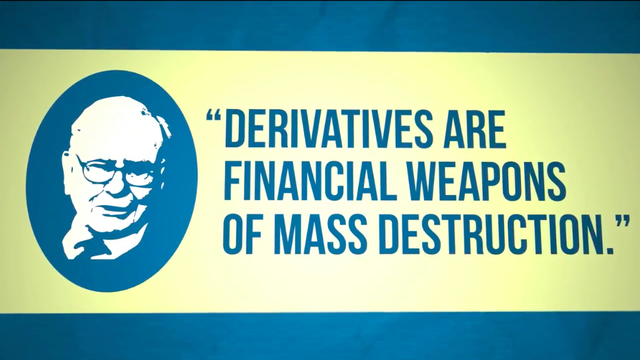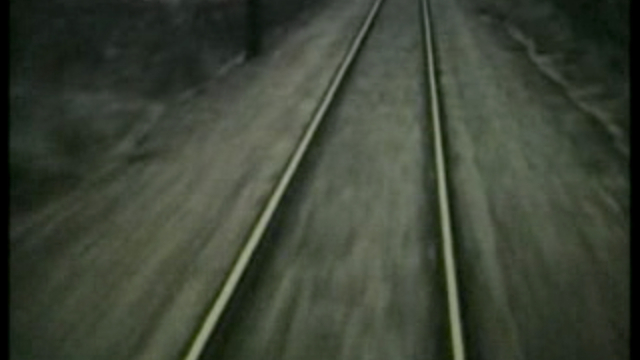Search results for 'crisis'
I DON´T REMEMBER
Disruption Network Lab #2: Cyborg
Second Event of the Disruption Network Lab In cooperation with Kunstraum Kreuzberg /Bethanien
Kunstquartier Bethanien, Studio 1, Mariannenplatz 2, Berlin, May 29-30, 2015.
This two days event presents keynote speeches, panels and live cinema connected with the understanding of cyborg identities, while exposing power structures embedded in technology and our everyday life. The event is built around the international book launch of The Cyborg: A Treatise on the Artificial Man, written by political Sci-Fi theorist Antonio Caronia (Genoa, 1944 – Milan, 2013), published by Meson Press / Hybrid Publishing Lab, Leuphana University of Lüneburg. Starting from the book of Caronia and going beyond it, the analysis will culminate discussing the most recent frontiers of biotechnology and transhumanism.
Rolling Jubilee
A bailout of the people by the people
Rolling Jubilee is a Strike Debt project that buys debt for pennies on the dollar, but instead of collecting it, abolishes it. Together we can liberate debtors at random through a campaign of mutual support, good will, and collective refusal. Our latest project The Debt Collective aims to build collective power to challenge the way we finance and access basic necessities such as housing, medical care and education. Join us as we imagine and create a new world based on the common good, not Wall Street profits.
ReadIntroducing the Global Power Project
An investigative series produced by Occupy.com that aims to identify and connect the worldwide institutions and individuals who comprise today's global power oligarchy.
ReadGlobalNoise
Activists involved in the Indignato, Occupy, #yosoy132, etc movements have begun a campaign to create GlobalNoise, a worldwide cacerolazo, or casserole march, on Saturday, October 13th, 2012. The hope is that local Occupations and Collectives will take up the call to march, using the method of a casserole march to highlight whatever issues are the most important to their community.
ReadThe Need for Practice
Exhibition, Bratislava, May 23 - June 22, 2014:
We are living in a prolonged period of economic, social, political and
environmental crisis, in which the yearning for global, redeeming
visions of the future has become increasingly frustrating, if not
obsolete. However, it is not possible to live without expectations,
without being able to imagine better conditions, a more positive state
of affairs. And what if ? as many thinkers, cultural producers and
various practitioners propose ? instead of heading towards fixed images
of the future, we understand utopia, as a continuous process of becoming
in which we participate? That is, instead of viewing the future as an
end, a goal we should attain in an ever-delayed 'some day', we actualize
it in the present, perform it in the everyday?
Distance versus Desire
The desire to transcend distance and separation has accompanied the history of media technology for many centuries. Various attempts to realise the demand for a presence from a distance have produced beautiful imaginaries such as those of telepresence and ubiquity, the electronic cottage and the reinvigoration of the oikos, and certainly not least among them the reduction of physical mobility in favour of an ecologically more sustainable connected life style. As current systems of hypermobility are confronted with an unfolding energy crisis and collide with severe ecological limits - most prominently in the intense debate on global warming - citizens and organisations in advanced and emerging economies alike are forced to reconsider one of the most daring projects of the information age: that a radical reduction of physical mobility is possible through the use of advanced telepresence technologies.
ReadPGO - The Post-Governmental Organisation
One of the four main themes of the N5M3 is the 'Post-Governmental
Organisation', a title that is meant more polemically than
descriptively. The 'PGO' label raises the question of the practical,
political and ethical impli cations of strong, potentially global,
independent organisations. The theme will be approached from different
critical, analytical and ironic perspectives in a public debate, and
the PGO Design-Show ("Get Organised!").
9-11 and After: A Virtual Case Book
The attack on the World Trade Center was--among other things--a stunning media event, and there was no shortage of analysis on mass media coverage. We saw no reason to replicate what others were doing. What no one seemed to be looking at closely was the significance of this ephemeral material that filled the streets and parks in New York below 14th Street or its relationship with the new media that was also flooding our lives.
The Revenge of Print
In the wireless era, is the paper medium simply passé for the work of activists? Are zamizdat, fanzines and political magazines just good for historians? After the mid-nineties zine crisis due to a sudden rise of the cost of paper and the advent of the Internet, the actual role of magazines seems to be re-defined and still strategical for the circulation of ideas.
ReadBodies of Fear in a World of Threat
They wanted the Germs; they got 'em. - Darby Crash
The use of the symbolic abstraction of fear as an exchangeable sign has
always been a helpful means to justify and manifest the most perverse
needs of authority invested in the expansion of militarized orders and
the erasure of individual autonomy. But in the United States after the
9/11 attacks, fear reigns supreme as a fundamental unit of exchange
across the entire political, economic, and military spectrum.
Video Warriors
In 1996, Adams Wood, Jeff Taylor, and A. Mark Liiv were working as activists on a forest defense campaign in Idaho. With a Hi-8 camera, they documented violations of timber sales agreements and confrontations between angry loggers and non-violent protesters as a way to keep people safe, as a tool in legal defense, and as an alternative to mainstream corporate media, which was biased in favor of the timber industry. The activists managed to pull off a 41-day road blockade, and the future founders of Whispered Media were shooting it. They cut their first video and called it ROAD USE RESTRICTED. The succinct but intense twelve-minute video was a great success, becoming part of several activist-run road shows and inspiring many a tree-hugger to haul it out to Idaho, which, says Liiv, "is not on the way to anywhere."
The Next 5 Minutes
tactical media event
Amsterdam & Rotterdam, The Netherlands, 12-14 March, 1999
www.n5m.org
(Source: Updated announcement Feb 11, 1999)
The Lessons of 2011: Three Theses on Organisation
Republished with permission from metamute / Mute Magazine in London:
Moving beyond the conceptual polarisation of tight-knit vanguardist
parties and loose-tie virtual networks, Rodrigo Nunes sifts the residue
of last year's wave of revolts to produce a more nuanced picture of
organisational dynamics in the age of Web 2.0
Conference Report ‘The Society of Post-Control’
Summary of the extended conversation on the emergence, consequences, and activist responses to the concept of "post-control"
Report of the conference 'The Society of Post-Control', organised by Eric Kluitenberg and David Garcia, tying into the opening of the exhibition As If.
SWARMACHINE
Activist Media Tomorrow*
* BH: When I wrote this text five years ago, it really was not clear whether
the swarming tactics of the counter-globalization movement would get a
"second chance." But they have, and now the subtitle could be "activist
media today."
What happened at the turn of the millennium, when a myriad of recording
devices were hooked up to the Internet and the World Wide Web became an
electronic prism refracting all the colors of a single anti-capitalist
struggle? What kind of movement takes to the barricades with samba bands
and videocams, tracing an embodied map through a maze of virtual
hyperlinks and actual city streets? The organizational aesthetics of the
networked movements was called "tactical media," a concept that mixed
the quick-and-dirty appropriation of consumer electronics with the
subtle counter-cultural anthropology of Michel de Certeau. The idea was
to evoke a new kind of popular subjectivity, constitutionally "under the
radar," impossible to identify, constantly shifting with the inventions
of digital storytelling and the ruses of open-source practice. Too bad
so much of this subversive process was frozen into a single seductive
phrase.
Tactical Media in Brazil - Submidialogia conference report
The four-day conference on the campus of the Universidade Estadual de
Campinas (Unicamp) brought together many key persons from the tactical
media movement of Brazil and some of their counterparts in the
Brasilian government.
The movement is converging from roots in
free radio, free software, hardware hacking, art and social movements.
It is currently focussed around a large-scale project master-minded by
Claudio Prado and supported by the Ministry of Culture: ?Pontos de
Cultura? (Culture Spots) which is aiming to empower up to 600 cultural
projects with free software-based multimedia production and publication
facilities.
The Language of Tactical Media
"World War III will be a guerilla information war, with no division between military and civilian participation." -- motto of Tactical Media Crew, borrowed from Marshall McLuhan
ReadBorders: Walking Across, as opposed to Flying Above
This text was written in July 2003, at the height of the tension on the border between India and Pakistan. Following elections in Pakistan, and in the Indian administered part of Kashmir, the two countries have agreed to de-escalate and troops on both sides are now on their way back to "peace time" positions. Relations between the two governments however, continue to be tense.
Read

